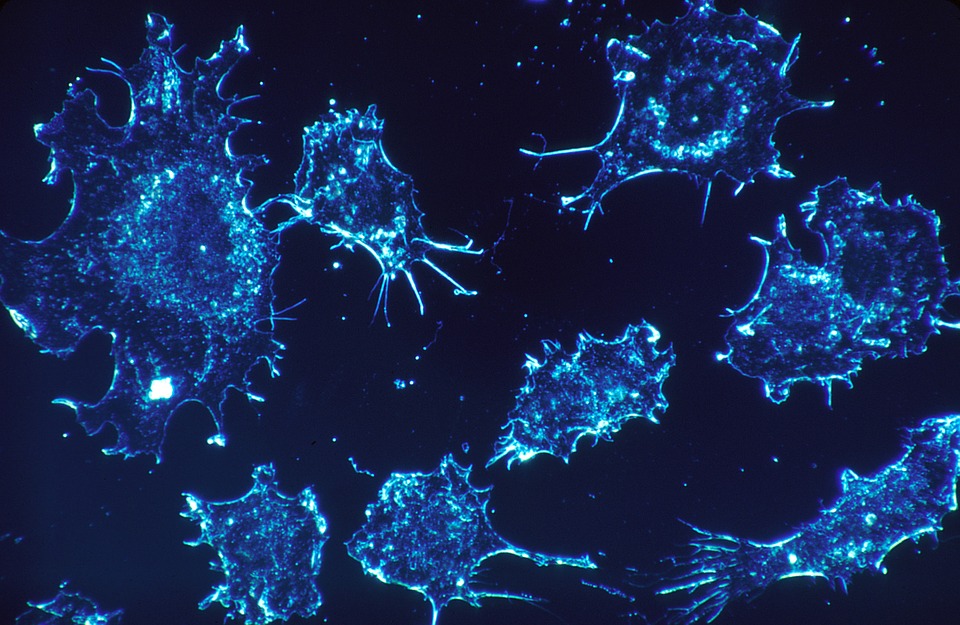GammaDelta Therapeutics, which develops immunotherapies for cancer and other diseases, acquires Portugal’s biotech startup Lymphact to advance its Gamma delta T cell platform.
“This transaction represents a milestone for the biotechnology industry in Portugal.”
Lymphact, a Portuguese startup in the portfolio of Portugal Ventures and Busy Angels, was acquired by British biotechnology company GammaDelta Therapeutics Limited, which justified the acquisition with the need to advance its Gamma delta T cell platform (γδ).
Read More: Uniplaces and Portugal Ventures name new CEOs
Gamma Delta T Cells live in our tissue and form a crucial part of our immune system.

Diogo Anjos
“This transaction represents a milestone for the biotechnology industry in Portugal, and I am confident that GammaDelta Therapeutics is the right partner to help bring our DOT-Cells technology to patients,” said Diogo Anjos, Co-Founder and CEO at Lymphact, via O Jornal Economico.
“We are also giving a clear signal that Portuguese entrepreneurship is aware of the potential of the life sciences sector,” he added.
The combination of British and national technology will allow the development of new immunotherapies aimed at treating various oncological diseases, both hematological and solid tumors.

Paolo Paoletti, MD
“We are excited about the potential of Lymphact technology and believe it complements our technology, which will help us advance our mission of offering new treatments for cancer patients,” said Dr. Paolo Paoletti, CEO of GammaDelta Therapeutics.
Founded in 2016, GammaDelta Therapeutics Ltd, is a breakthrough Immunotherapy company incubated by Abingworth. The company is supported by Cancer Research Technology, King’s College London, and the Francis Crick Institute.
GammaDelta Therapeutics has been founded on pioneering research into γδ T cells led by Professor Adrian Hayday and Dr. Oliver Nussbaumer at King’s College London and the Francis Crick Institute, funded in part by Cancer Research UK.
Lymphact was founded in 2013 with research from Bruno Silva-Santos (at the Instituto de Medicina Molecular João Lobo Antunes) and Daniel Correia (who discovered the DOT-Cells, a new type of lymphocytes with ability to kill tumors), to which Anjos later joined.

Rita Marques
Regarding the acquisition of this company from its portfolio, Rita Marques, newly-appointed CEO of Portugal Ventures, stated in Link to Leaders that “with this operation, we are projecting Portugal to the world, exporting national knowledge and technology with relevant socioeconomic impact.”
She believes that this success case will leverage other cases in the future, “with a multiplier effect of projects in life and health sciences originating in Portugal, which will continue to arouse the interest of international economic agents in technological innovation,” concludes.
Gamma delta T cells are a unique and conserved population of lymphocytes that contribute to many types of immune responses and immunopathologies.
The company is focused on exploiting this work to develop improved immunotherapies for cancer and other serious immune related diseases.
Lymphact is a biopharmaceutical startup focused on developing state-of-the-art personalized treatments targeting cancer and chronic viral diseases.
Its first product could target not only cancer and virus-infected cells, but also chemotherapy-resistant cancer stem cells and viral reservoirs, believed to cause disease recurrence.
An improved anti-tumor function and the absence of severe associated side-effects are distinctive and unique features of its therapeutic approach.
Gamma delta T cells are the prototype of “unconventional” T cells and represent a relatively small subset of T cells in peripheral blood. They are capable of recognizing and lysing diverse cancers in an MHC-unrestricted manner, highlighting their potential for pan-population immunotherapy, in contrast to MHC-restricted αβ T-cell mediated immunotherapy, according to the British Society for Immunology.
γδ T cells are either tissue or blood-derived. They have been of interest to the scientific community for many years, with advancements in knowledge in the last 15-20 years generating important steps forward in the field.
For example, research in mice has shown that defects in these cells result in a significant increase in tumor occurrence and severity, while studies conducted in large samples of tumors in humans have revealed that the presence of Gamma Delta T Cells is a major positive prognostic factor for overall survival across 39 tumor types.

